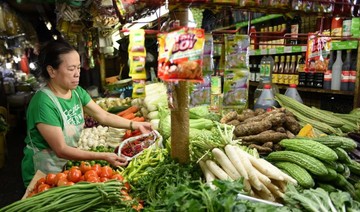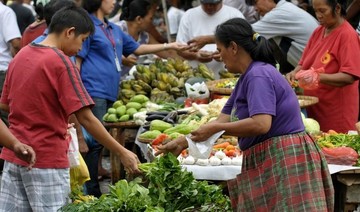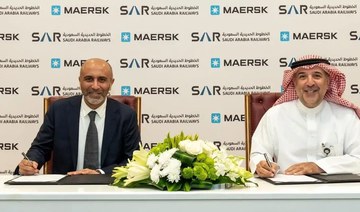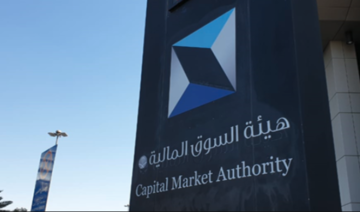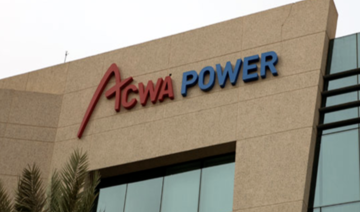MANILA: Cash remittance from Filipino workers (OFW), particularly those in the Middle East, saw a steep decline from January to July this year, figures from the Central Bank of the Philippines (BSP) show.
A lawmaker noted that even the lifting of the ban on deployment of Filipinos to Kuwait last May failed to stop the remittance plunge.
Based on latest BSP data, there was 15 percent decrease in remittances from OFWs in the Middle East, although fund transfers from Libya and Israel fell the most at 73 percent and 61 percent respectively.
With that, Rep. Henry Ong, chairman of the House Committee Chair on Banks & Financial Intermediaries, said the policy shift in OFW deployment priorities must happen “sooner rather than later.”
“Filipinos are being held hostage by armed groups in Libya. Israel recently welcomed President Rodrigo Duterte on a brief visit. However, the remittances from these two countries pale in comparison with those from Saudi Arabia, the United Arab Emirates, Bahrain, Kuwait, and Oman, which were in the high double-digit percentages decline,” he said.
Remittances from Kuwait fell by 20.4 percent despite the resumption of OFW deployment last May. Bahrain showed negative 22.9 percent, transfers from Oman dropped by 38.3 percent and Saudi Arabia showed a slide of 10.4 percent.
Qatar is the exception. The remittances decline from Filipino workers there was only 6.3 percent.
The Leyte second district representative pointed out: “There should not even be Filipinos in Libya because the security situation there is horrible, but still Filipinos go because that is where they have found jobs on their own.
“OFWs clearly have bleak and low-paying job prospects here in the Philippines because our wages are way below what they can earn abroad, so we have no choice but to deploy them elsewhere, to countries that will pay them well and respect their rights as migrant workers and as people of varied gender.” .
For this to happen, Ong said the priority list of alternative countries “must include those states that are signatories to the international conventions on human rights, labor, social security, and migrant workers.
“The other criterion would be the economic growth prospects of the target host countries because that will determine how well they will be compensated for their services. OFWs will go where they are respected, wanted, and paid well.”
Ong lamented, though, that “it does not seem the concerned top officials have what it takes to help OFWs find better jobs in new host countries.
“They are just doing bureaucratic procedures and damage control on the problems that keep cropping up, but we do not see systemic, long-term solutions. Suffering through all that are the OFWs.”
Meanwhile, aside from the decrease in cash remittance, the Philippines also suffered a decline in deployment of OFWs in 2017 after 10 years of continuous growth.
Recruitment consultant and migration expert Emmanuel Geslani, citing statistics from the Philippine Overseas Employment Administrstion (POEA), said deployment of OFWs to 180 countries went down by 9 percent in 2017 compared ith the previous year. The year 2016, Geslani said, was a banner year of deployment for OFWs with total deployment hitting more than two million.
POEA records show that only 1,992,746 OFWs were deployed in 2017. Geslani said this is the first time after 10 years of continuous increase starting in 2008 with 1,236,613 deployment; 2009 with 1,422,382; 2010 with 1,476,826; 2011 with 1,687,463; 2012 with 1,802,031; 2013 with 1,826,804; 2014 with 1,832,668; 2015 with 1,841,205; and 2016 with 2,112,331.
Geslani said the decrease may be attributed to actors, such as the decline in the hiring of new workers to Saudi Arabia, from 219,134 in 2016 down to 163,238 in 2017.
A decrease in the number of new hires was also noted in the rest of the top ten OFW destinations, which include Kuwait, Qatar, Hong Kong, Taiwan, the UAE, Japan, Singapore, Malaysia and Oman.
“Another reason for the decline is the increasing shift of Saudi Arabia to employ more citizens to work in companies and malls as part of its ‘Saudization’,” Geslani continued.
In addition, more major projects in the Kingdom have been shelved or delayed, resulting in the exodus of more than 30,000 Filipino skilled workers in construction, maintenance services and oil industries, he added. “Crude oil, which has stayed in the $70-80 level, has prevented Middle East countries from going on construction and infrastructure projects, except for Qatar which is preparing for the football World Cup in 2022.”
Even the household service workers sector also dropped by 8 percent in 2017 owing to internal controls implemented by the Philippine labor officers in the Middle East, Geslani said.
For 2018, he predicts that deployment of household service workers is not expected to go beyond the 200,000 mark with the deployment ban imposed in Kuwait resulting in the loss of 40,000 jobs.
Philippines posts 15 percent drop in cash remittance from Middle East
Philippines posts 15 percent drop in cash remittance from Middle East
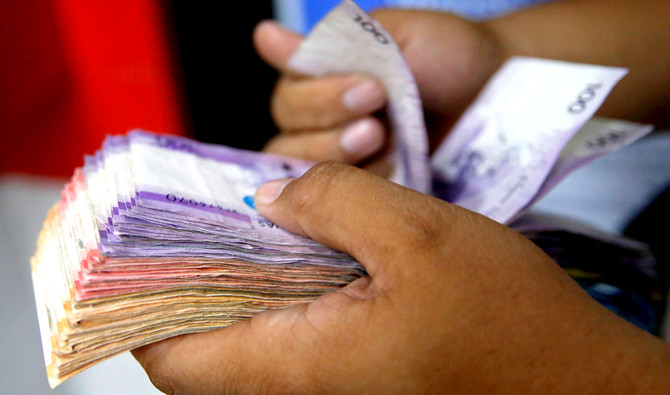
- There has been a 15 percent decrease in remittances from Overseas Filipino Workers (OFWs) in the Middle East, with fund transfers from Libya and Israel falling the most at 73 percent and 61 percent — Central Bank of the Philippines
- Remittances from Kuwait fell by 20.4 percent despite resumption of OFW deployment; Bahrain showed negative 22.9 percent; transfers from Oman dropped by 38.3 percent; and Saudi Arabia showed a slide of 10.4 percent
Saudi Arabia open to financing up to 75% of certain industrial projects, says minister

RIYADH: Saudi Arabia is open to providing up to 75 percent of financing for certain industrial projects, a minister has revealed in a bid to incentivize foreign investment and private sector players.
During his discussion with several Qatari investors on the sidelines of the 52nd meeting of the Gulf Cooperation Council Industrial Cooperation Committee in Doha, Bandar Alkhorayef, the Kingdom’s minister of industry and mineral resources, highlighted the vast opportunities that Saudi Arabia’s untapped mining potential provides to global investors.
According to a release on X, he reaffirmed that in addition to the incentives provided by the industrial and mineral wealth system and the multiple sources of financing, the prepared infrastructure in more than 36 industrial cities around the Kingdom offers a sum of qualitative capabilities such as the production of prefabricated factories and long-term rentals.
SAR sees 9% annual growth in cargo transported
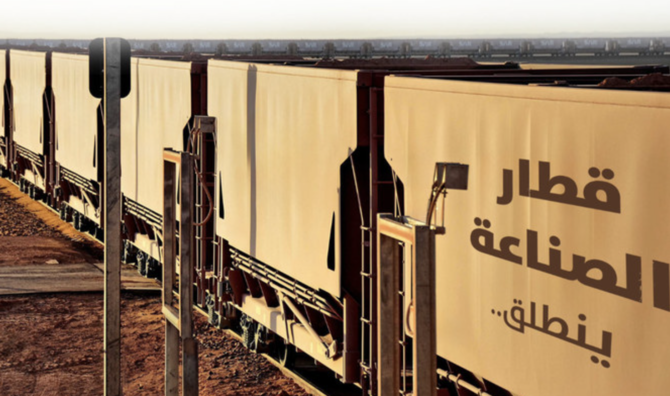
RIYADH: The volume of minerals and goods transported by Saudi Arabia Railways reached 6.34 million tonnes during the first quarter of 2024, an annual increase of 9 percent.
According to its quarterly report, SAR stated that over 2.7 million passengers utilized its services, marking a 23 percent growth compared to same period last year.
Passenger rides also increased by 3 percent, reaching a total of 8,252 trips across the East Train, North Train, and Haramain Express train networks.
Saudi financial sector expands ambitions, eyes foreign investment surge: report
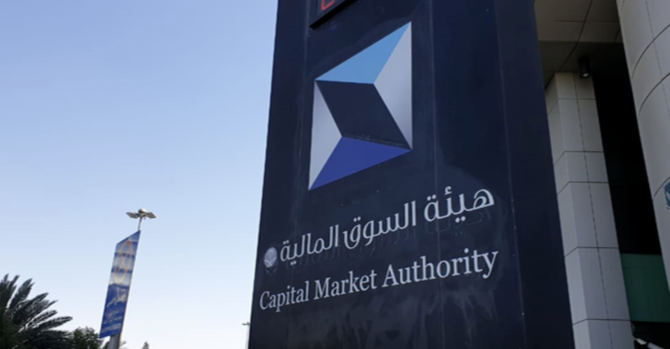
RIYADH: Saudi Arabia aims to enhance its stock exchange appeal to foreign investors, targeting 17 percent ownership of free float shares by 2024, a new report has revealed.
According to the 2023 Financial Sector Development Program document, the Saudi Capital Market Authority plans to boost assets under management to 29.4 percent of gross domestic product by 2024 by increasing the investment environment and attracting more investors.
The report, published annually, highlights the achievements in the financial sector, particularly the Kingdom’s ongoing progress in competitiveness indicators related to the capital market, as stated by Mohammed Al-Jadaan, minister of finance and chairman of the FSDP.
Commenting on the development of the financial sector, Al-Jadaan emphasized the importance of innovation and investment in talent and technology.
“We have placed innovation and investment in both talent and technology at the top of our priorities, because we recognize the importance of building a dynamic financial environment that allows companies — especially startups — to flourish and succeed,” the minister stated.
In line with its commitment to facilitating financing in the capital market, the CMA also plans to accelerate the pace of listings by welcoming 24 new companies in 2024.
Moreover, there will be a focus on supporting the development of new and promising sectors, with a target of having micro and small enterprises account for 45 percent of total listings.
Another area of emphasis is the deepening of the sukuk and debt instruments market, with the goal of increasing the debt-to-GDP ratio to 22.1 percent by the end of 2024. These measures aim to provide diverse financing options for companies and further stimulate economic growth.
“The capital market ecosystem continued its efforts to contribute to developing the financial sector and achieving the Saudi Vision 2030,” stated Mohammed El-Kuwaiz, chairman of the CMA.
“By approving rules for foreign investment in securities and streamlining regulatory procedures, we have witnessed a significant increase in foreign investments in the capital market, reaching SR401 billion ($106.9 billion),” El-Kuwaiz added.
The Saudi Central Bank also reaffirmed its commitment to adhering to international standards and best practices to enhance the strength and stability of the financial sector.
Initiatives such as developing digital solutions for supervising the financial sector and enabling local and international FinTechs demonstrate the Kingdom’s dedication to embracing technological advancements.
Furthermore, the Financial Academy unveiled its new strategy for 2024-2026, focusing on enhancing human capabilities in the financial sector through training programs and professional certifications.
The academy aims to increase the number of trainees and improve the quality of its services to meet the evolving needs of the industry.
The 2023 FSDP report highlighted significant progress across sectors like fintech and digital banking.
The Kingdom saw a surge in fintech companies, surpassing 2023 targets with 216 in operation and launching two digital banks.
Saudi Arabia claimed the top spot in the Corporate Boards Index among G20 nations and secured second place in various indices. Foreign companies relocated headquarters to the Kingdom, deepening the capital market.
Moody’s, Fitch, and S&P Global Ratings revised Saudi Arabia’s outlook to “Positive” and affirmed its “A1” and “A+” credit ratings, citing fiscal policy development, economic reforms, and structural improvements.
Saudi Arabia led venture investments in the Middle East & North Africa, securing 52 percent of total investments in 2023, and allocated SR10 billion to support small and medium enterprises across economic activities and regions in the first half of the year.
ACWA Power signs $1.51bn senior debt financing agreement for Qassim 1 Power Plant
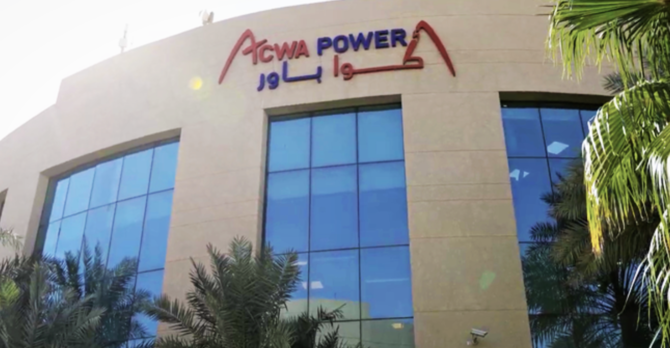
RIYADH: Saudi utility firm ACWA Power has signed a senior debt financing agreement for the Qassim 1 Combined Cycle Power Plant for SR5.69 billion ($1.51 billion).
The deal, signed through Qudra One for Electricity Co., will extend for 28 years, according to ACWA Power’s statement to Tadawul.
International and local commercial lenders, including Standard Chartered Bank, Bank of China, and Riyad Bank, as well as Saudi National Bank, Alinma Bank, Saudi Investment Bank, and Saudi Awwal Bank, financed the senior debt.
Abu Dhabi’s ADQ lists debut $2.5bn bonds on London Stock Exchange
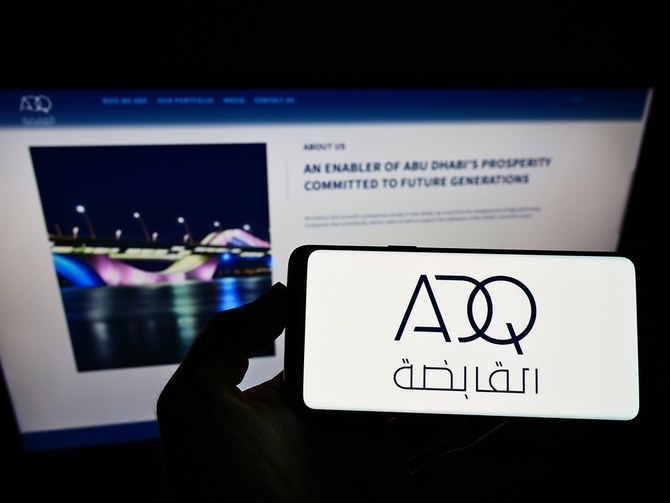
The smallest of three Abu Dhabi sovereign wealth funds ADQ has listed a dual tranche $2.5 billion bond on the London Stock Exchange, the fund said in a statement.
The fund sold a $1.25 billion five-year portion at 80 basis points over US Treasuries and another $1.25 billion 10-year tranche at 90 bps over the same benchmark, fixed income news service IFR reported.
Citigroup, Credit Agricole, First Abu Dhabi Bank, Goldman Sachs International, HSBC and Standard Chartered were joint global coordinators and active bookrunners on the bond issuance deal.
The proceeds from the debt sale, which was oversubscribed more than 4.4 times, will diversify ADQ’s funding mix, enhance financial resilience and contribute growth capital.



